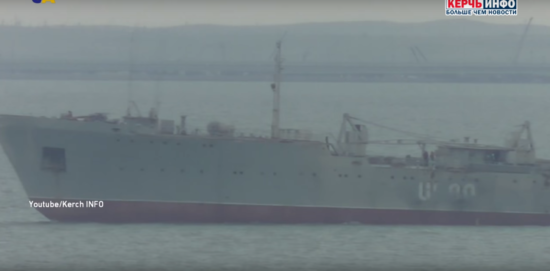Over the past couple of days, Ukraine followed the developments in the Azov sea, as two Ukrainian warships passed the Kerch Strait moving towards their destination in the port of Mariupol.
On Sep. 20, the vessels Donbas and Korets departed from Odesa. During their passage through the Kerch Strait, they were tailed by a dozen Russian ships accompanied by military aviation.
In an attempt to provoke the Ukrainian navy, a few jets made low-altitude fly-bys. Another provocation took place near Mariupol, where a Mongoose-type vessel of the Russian border guards approached the Ukrainian military ships at high speed but was intercepted by two Ukrainian artillery boats.
“At 9:30 a.m. today, the navy tugboat Korets finished with the transit of the warships of the Ukrainian Navy to the Mariupol port,” Navy Spokesman Oleh Chalyk said.
Efforts by Ukraine to increase its military presence in the Azov Sea are greeted by the residents of another Azov seaport, Berdiansk.
In early September two armored boats were transported to Berdiansk by land. They are stationed near the city’s Rescue Diver Service.
While the Ministry of Defence wouldn’t comment on the location of Ukraine’s new military base, it is expected to appear in one of the Azov Sea ports. Efforts to facilitate the arrival of Navy ships appear to be very much underway in Berdiansk.
“We had negotiations with the Navy and the mayor’s office. A piece of real estate was transferred to the military so that they could create a base for their personnel’s permanent quarters, which will be located in our city,” Aide to the Mayor of Berdiansk Dmytro Zubovych said.
Ukraine’s military build-up in the Azov Sea comes as a response to Moscow’s activity over the past months- activity commonly described as a blockade, where the Russian Navy would detain vessels from across the world preventing them from accessing Ukraine’s Azov Sea ports, leading to losses for Ukraine and its international partners.
According to an agreement signed in 2003, the Azov Sea is a mutual area, allowing for equal use by both countries. If Russia violates the agreement, it may trigger another wave of sanctions against the Kremlin.













